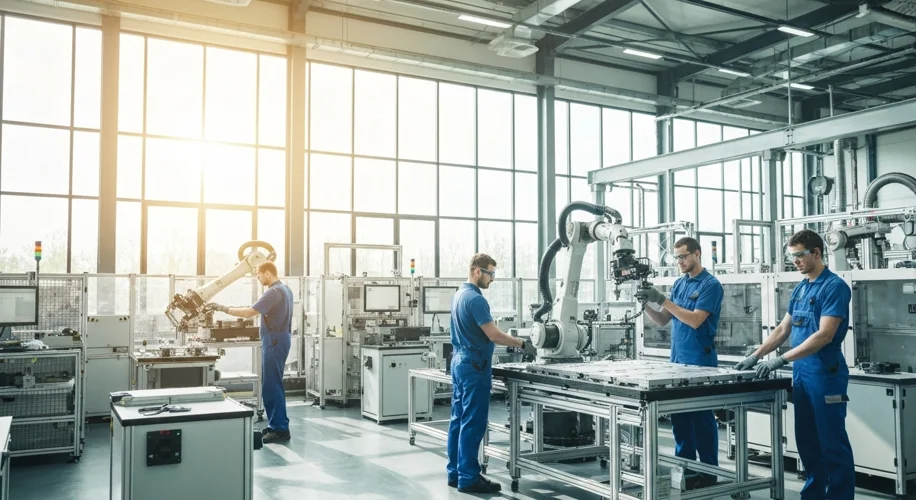It’s fascinating to watch how technology and economic growth intertwine. As someone who spent decades in the software industry, I’ve seen firsthand how innovation can reshape entire sectors. Today, the rapid expansion of US manufacturing, driven by new technologies, offers a clear example of this dynamic.
Think about it: advancements in automation, AI, and advanced materials aren’t just making factories more efficient; they’re creating new jobs and boosting productivity. This isn’t just about making things faster; it’s about making them better, more accessible, and ultimately, contributing to a stronger economy. We’re seeing a resurgence in certain types of manufacturing, not by going back to old ways, but by embracing new ones.
I recall early in my career, the skepticism surrounding software’s potential. Many saw it as a niche tool. Now, it’s the backbone of global commerce. This mirrors what we’re seeing in manufacturing today. The integration of smart technology, robotics, and data analytics is transforming how goods are produced. This increased efficiency and output directly impacts economic indicators, potentially leading to job creation in higher-skilled roles and fostering broader economic well-being.
This technological uplift in manufacturing isn’t just about economic indicators on a spreadsheet. It has a real impact on society. It can lead to more localized production, potentially reducing supply chain vulnerabilities, and create opportunities for skilled labor. It’s about adapting and evolving, ensuring that progress benefits a wider range of people.
From my perspective, the key takeaway is that technology is a powerful engine for economic growth. However, it’s crucial that we consider the human element. How do we ensure that these advancements lead to inclusive growth? How do we prepare the workforce for these shifts? These are the questions that we, as a society, must continue to ask and address thoughtfully.
The story of US manufacturing’s technological revival is a compelling one, showcasing how innovation can drive economic progress and, with careful consideration, enhance societal well-being. It’s a reminder that embracing technological change, while being mindful of its broader implications, is essential for a thriving future.

